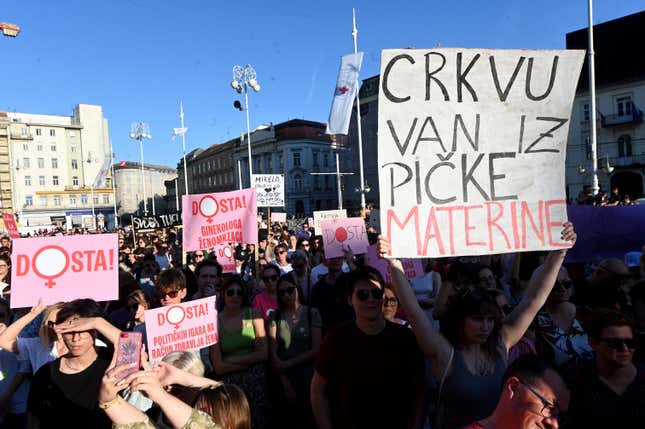Croatians Demanded This Woman Be Allowed to Have an Abortion, and It Worked
The woman learned at 20 weeks pregnant that her fetus had an “aggressive” brain tumor.
AbortionPolitics

A Croatian woman who’d been denied an abortion was able to get one after thousands protested in several cities across the country, according to the Associated Press and the AFP.
The woman, Mirela Čavajda, said she learned at 20 weeks pregnant that her fetus had an “aggressive” brain tumor that would severely limit its functioning—if it survived the pregnancy. Čavajda, who is 39 and already has one child, said four different hospitals refused to terminate the pregnancy and told her to go to neighboring Slovenia instead.
Abortion is banned in Croatia after 10 weeks of pregnancy—with exceptions for serious health threats to the pregnant person or fetus, or in cases of rape or incest. But, the AP reports, doctors in the highly Catholic country often refuse to honor these exceptions.
-

-

-

-

-

-

-

-

-

-

-

-

-

-

-

-

-

-

-

-

-

-

-

-

-

-

-

-

-

-

-

-

-

-

-

-

-

-

-

-








































